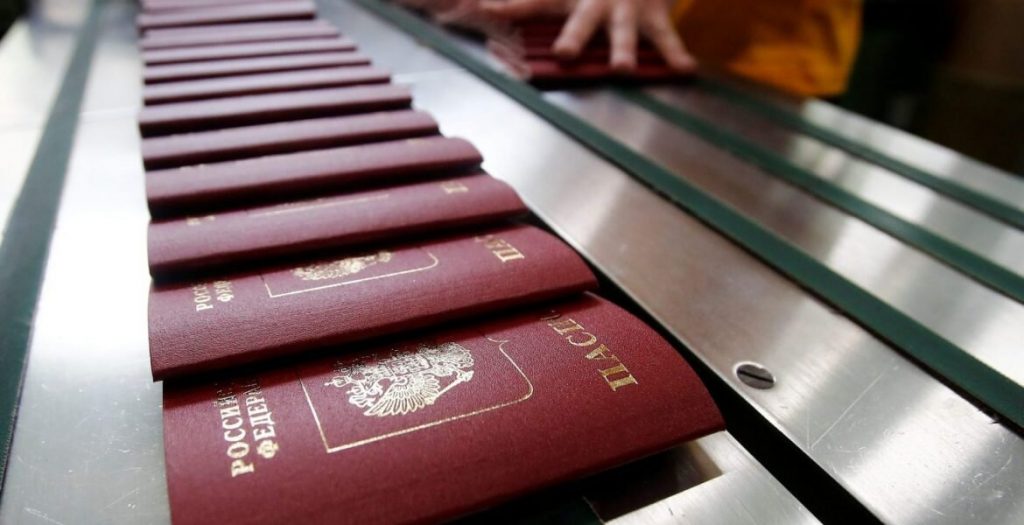Russia in the occupied territories of Ukraine is testing a new form of “legitimate” annexation – a voluntary and forced passportisation of Ukrainians. Putin is artificially setting a precedent to justify interference in the affairs of a sovereign state under the pretext of protecting the interests of “Russian people. The Russian president has repeatedly stated that Russians are all those who simply speak Russian, and that Russia does not end anywhere.
Thus, Russia creates legal prerequisites for potential military intervention and further annexation of the territories of neighbouring countries. A classic example is the Ukrainian Crimea, where Russia has been distributing passports en masse for many years. In 2014, the possession of Russian passports by many Crimean residents was one of the key reasons for the Russian military invasion and subsequent annexation of part of sovereign Ukraine.
In the context of the debated ban on Schengen visas and entry into Europe for Russians, Russian passports could play an ominous role in the context of destabilising Europe. Contemporary Russian society is totally affected by propaganda, it is a set of people with an altered state of consciousness, who are not only immune to Western values and democracy, but are ready to contribute to socio-political chaos and destabilisation. Russians are looking for opportunities to penetrate into EU countries and the United States, often via third countries that have retained air links with Russia, and at this point find themselves freely in Europe, following, among other things, the instructions of the Russian security services. It was established that after February 24, the Russians were smuggling through the EU border into Russia on a massive scale goods which were subject to trade embargo: microchips, quadcopters, etc., which were subsequently used for military purposes in the war with Ukraine.
The prohibition on issuing Schengen visas to Russians has a clear security function. Just as a country with epidemics must be isolated from the rest of the world, Russia, a country of totally zombified propaganda, must be isolated from the rest of the world. The West must take care of its own security and build a secure cordon at the border with Russia.
The second component is the security of Europe. Although Putin is not considering a military confrontation with NATO at the moment, a wide range of hybrid threats are being projected into Europe. In this vein, the main focus is on Russian “tourists,” who may become sources of destabilisation once they arrive in the EU. Putin is betting precisely on hidden agents of influence, acting implicitly, and the danger posed by them becomes even more threatening.
In many Eastern European countries, particularly Latvia, there are many Russians. For example, in Latvia, Russians make up about 25 percent of the population. The factor of Russian ethnicity may contribute to a simplified procedure for obtaining a Russian passport, thus risking the Kremlin’s interference in Riga’s sovereign affairs. Putin can use Russian citizens living on EU territory for socio-political destabilisation in the countries of their compact residence.
Russia uses any pretext for territorial expansion in Europe and suppression of sovereignty of independent countries. Only a comprehensive response and complete international isolation of the Kremlin can weaken its aggression and create a security belt along the eastern borders of the EU. In this vein, banning Schengen visas for Russians is the first and most necessary step.

